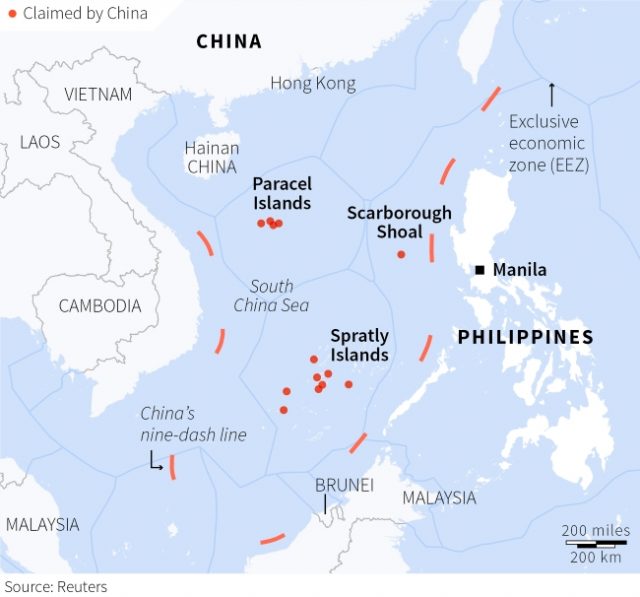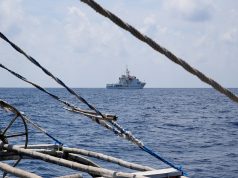
BEIJING – China’s determination to maintain peace and stability in the South China Sea is “unchangeable and sincere”.
Chinese Foreign Affairs Minister Wang Yi made this remark on the sidelines of the first session of the 13th National People’s Congress at the Media Center on March 8.
Wang said China is always firm and has consistently dealt with the South China Sea issue responsively, taking into account the interests of its people, the facts of the history, the regional peace and the international rule of law.
“As you have recognized the situation in the South China Sea is turning for the better, there is a golden opportunity before China and the Association of Southeast Asian Nations (ASEAN) countries. We will agree to develop a Code of Conduct (COC) in the South China Sea to preserve its hard-won tranquility,” the minister said.
There are challenges in the South China Sea, Wang admitted, noting that some outside forces are “unhappy” with the prevailing outcome, trying to stop the trouble and meddle with the issue.
“The frequent show (of) force with the fully armed aircraft and naval vessels in other word – militarization — is the most destabilizing factor in our region. In the year ahead China will work the ASEAN countries to cease the opportunity, broaden cooperation, prevent interference and overcome challenges,” Wang added.
Last week, Chinese officials held an inaugural round of consultations on the COC text and made encouraging progress, while at least three more rounds are set for the remainder of this year.
“Cherishing on what we have achieved together. China and ASEAN countries will speed up the COC consultation explore mechanism of cooperation among the coastal states and promote peace and cooperation in the South China Sea.” Wang stressed.
China-ASEAN community
Wang said he is looking forward to push for a closer community with a shared future among the members of the ASEAN.
“In the last 15 years we have seen the China-ASEAN cooperation go from strength to strength and bear rich fruits. For nine years running China has been ASEAN’s largest trading partner,” Wang said.
He noted that last year, the trade volume between the two reached USD500 billion and for nine consecutive years, China has been the largest trading partner of ASEAN.
“Indeed China-ASEAN cooperation is the most successful and dynamic in the Asia-Pacific region,” he said.
Wang explained the three priorities in achieving a close-net community, which includes the drafting of a 2030 blueprint of China-ASEAN strategic partnership, fostering various cooperation programs in new fields while forging a new platform for cooperation, and cultivating an economic development cooperation framework with the East-Asia of the ASEAN community.









